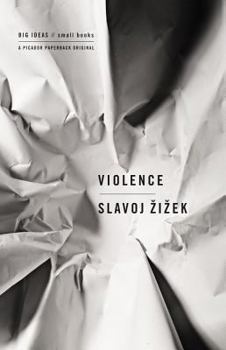Violence: Six Sideways Reflections
Select Format
Select Condition 
Book Overview
Philosopher, cultural critic, and agent provocateur Slavoj Zizek constructs a fascinating new framework to look at the forces of violence in our world.
Using history, philosophy, books, movies, Lacanian psychiatry, and jokes, Slavoj Zizek examines the ways we perceive and misperceive violence. Drawing from his unique cultural vision, Zizek brings new light to the Paris riots of 2005; he questions the permissiveness of violence in philanthropy; in daring terms, he reflects on the powerful image and determination of contemporary terrorists. Violence, Zizek states, takes three forms--subjective (crime, terror), objective (racism, hate-speech, discrimination), and systemic (the catastrophic effects of economic and political systems)--and often one form of violence blunts our ability to see the others, raising complicated questions. Does the advent of capitalism and, indeed, civilization cause more violence than it prevents? Is there violence in the simple idea of the neighbour? And could the appropriate form of action against violence today simply be to contemplate, to think? Beginning with these and other equally contemplative questions, Zizek discusses the inherent violence of globalization, capitalism, fundamentalism, and language, in a work that will confirm his standing as one of our most erudite and incendiary modern thinkers.Format:Paperback
Language:English
ISBN:0312427182
ISBN13:9780312427184
Release Date:July 2008
Publisher:Picador USA
Length:272 Pages
Weight:0.50 lbs.
Dimensions:0.7" x 4.7" x 6.8"
Customer Reviews
0 rating





